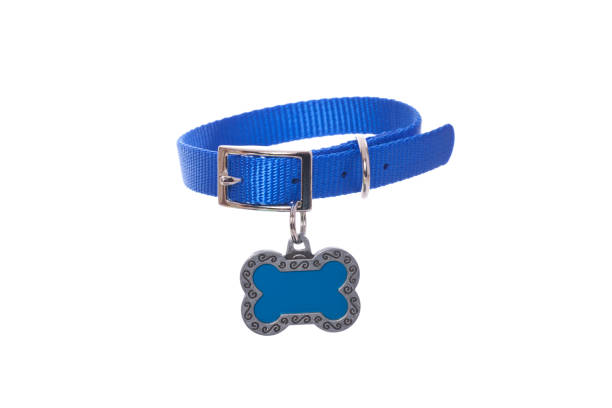Ever caught your furry friend munching on your lawn like it's a gourmet salad? You're not alone. "Why do dogs eat grass?" is officially the most searched dog-related question on Google, and today we're diving deep into this puzzling canine behavior with insights from actual scientific research.
The Great Grass Mystery: What's Really Going On?
Picture this: You're enjoying a peaceful morning in your backyard when suddenly your dog starts grazing like a four-legged lawnmower. Before you panic and rush to the vet, take a deep breath. Grass eating is one of the most common and typically harmless behaviors in dogs.
The surprising truth backed by science? According to a landmark study published in Applied Animal Behaviour Science, 79% of dogs eat grass regularly, making it an incredibly common behavior. So if your pup is part of the grass-eating club, they're in excellent company.

What the Research Actually Shows
The Numbers Don't Lie
Multiple scientific studies have examined this behavior:
- 68% of dogs eat plants (mostly grass) on a daily or weekly basis, according to research published on HowStuffWorks
- Only 8% showed signs of illness before eating grass, debunking the "sick dog" myth
- 22% of dogs were reported to vomit after eating grass, contradicting the popular belief that dogs eat grass specifically to vomit
Groundbreaking Research Findings
A comprehensive study by Sueda et al., published in Applied Animal Behaviour Science, found that grass was the most frequently eaten plant by 79% of dogs. Importantly, only 9% were reported to frequently appear ill before eating plants, challenging long-held assumptions about this behavior.
Top 5 Science-Backed Reasons Why Dogs Eat Grass
1. Natural Instinct and Evolutionary Behavior
According to research from the University of New England, plant eating evolved in wild canids and was preserved through the domestication process. Your modern pup might simply be following ancient genetic programming that helped their ancestors survive.
2. Nutritional Supplementation
A 2020 study by Beynen explored the connection between diet and grass eating, suggesting dogs might seek additional fiber and nutrients not adequately provided in their regular diet.
3. Digestive Function, Not Dysfunction
Contrary to popular belief, research published in Applied Animal Behaviour Science found that dogs spent significantly more time eating grass when fed standard diets compared to fiber-supplemented diets, suggesting grass eating may serve a normal digestive function.
4. Behavioral and Environmental Factors
Studies indicate that boredom and anxiety can contribute to grass eating, especially in dogs with limited mental stimulation or social interaction.
5. Simply Because They Can
As noted by veterinary researchers, some dogs just enjoy the taste and texture of fresh grass, particularly young, tender shoots.

The Vomiting Connection: What Science Really Says
Myth: Dogs eat grass to make themselves vomit when sick. Scientific Reality: According to Psychology Today's analysis of veterinary research, this is largely a myth. Most dogs don't show signs of illness before eating grass, and vomiting occurs in less than 25% of grass-eating episodes.
The relationship between grass eating and vomiting is more complex than we once thought, with research from ResearchGate showing that while some dogs do seek out grass when feeling nauseous, the majority eat grass as part of normal behavior.
When Grass Eating Becomes a Concern
According to veterinary research, watch for these red flags:
- Excessive vomiting after eating grass
- Lethargy or loss of appetite
- Obsessive grass consumption throughout the day
- Consuming treated grass (with pesticides or fertilizers)
- Accompanying symptoms like diarrhea or behavioral changes
Keeping Your Grass-Eating Dog Healthy
Maintain Overall Health
Research shows that dogs with underlying health issues may exhibit increased grass-eating behavior. Maintaining your dog's overall health, including proper ear care, can reduce stress-related behaviors.
Pro tip: Regular ear maintenance with quality products like Wuffinity's Dog Ear Powder (30g) can help prevent ear infections that might contribute to stress-related behaviors like excessive grass eating. This safe, effective ear cleaner keeps ears healthy and odor-free, potentially reducing your dog's overall discomfort.

Manage the Aftermath
Let's be honest – what goes in must come out. Grass-eating dogs often have more frequent bathroom breaks and occasional accidents. Being prepared is key to stress-free pet ownership.
Keep cleanup simple with Wuffinity's Disposable Non-Woven Puppy Pee Pads. These hassle-free pads offer strong water absorption and make cleanup a breeze, whether you're dealing with indoor accidents or post-grass-eating digestive episodes.
Expert-Recommended Management Strategies
Based on veterinary research and expert recommendations:
- Provide a balanced, high-fiber diet to reduce nutritional grass-seeking
- Offer safe alternatives like dog-safe herbs (parsley, cilantro)
- Increase mental stimulation with puzzle toys and training
- Ensure regular exercise to reduce boredom-related grass eating
- Create a designated "grass patch" with untreated grass
- Monitor grass types and avoid chemically treated areas
- Maintain consistent feeding schedules to prevent hunger-driven behavior
The Scientific Bottom Line
According to The Kennel Club, "Eating grass is a normal behaviour for dogs. It's unlikely that they'll get much nutrition from it, but for an otherwise healthy dog that is regularly wormed, eating grass every now and again is unlikely to be something to worry about."
Research consensus: Grass eating is a normal, common behavior that shouldn't cause concern in healthy dogs. However, sudden changes in patterns or accompanying symptoms warrant veterinary consultation.
Creating a Grass-Safe Environment
If your dog loves grass, research suggests making sure they're eating the good stuff:
- Avoid treated lawns with chemicals
- Grow dog-safe grass in containers
- Check for toxic plants in your yard
- Provide fresh water to aid digestion
Understanding your dog's grass-eating habits through the lens of scientific research helps us provide better care. By staying informed about normal canine behaviors and maintaining your pup's overall health – from clean ears to easy cleanup solutions – you're setting both of you up for a happy, healthy life together.
What's your experience with grass-eating dogs? Share your stories in the comments below, and don't forget to bookmark this post for future reference!
Sources and Further Reading:
- Sueda, K.L.C. et al. "Characterisation of plant eating in dogs." Applied Animal Behaviour Science
- McKenzie, S.J. "Reduction in grass eating behaviours in the domestic dog." Applied Animal Behaviour Science
- Bjone, S.J. et al. "Grass eating patterns in the domestic dog, Canis familiaris." University of New England
- Beynen, A.C. "Diet and grass eating in dogs." ResearchGate
Ready to tackle all aspects of dog care with science-backed solutions? Check out our complete range of premium dog care products at Wuffinity.store – because every dog deserves the best.






0 commenti